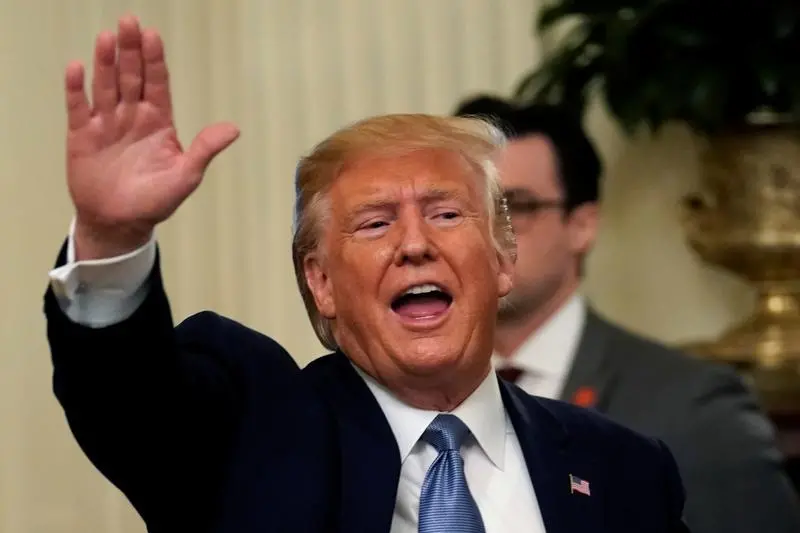PHOTO
NEW YORK - Listen to politicians discuss U.S. healthcare and it sounds like there are two options: rip out private sector involvement, a proposal favored by some Democrats, or put more in, as the White House suggested on Thursday. There are three reasons to think the needle is drifting somewhere left of the middle.
President Donald Trump’s new plan focuses on Medicare, the program designed for elderly Americans and funded by government payments. The basic idea is to funnel patients towards Medicare Advantage, a scheme managed by insurance companies, and away from regular Medicare, which the government runs directly. Already 34% of Medicare patients choose the insurer option. Trump’s plan would enhance that with telemedicine services, letting insurers pass some savings to patients, and effectively making traditional Medicare more expensive.
That contrasts with proposals put forward by Democrats like Bernie Sanders and Elizabeth Warren, who want to challenge Trump for the presidency in 2020. Their idea, complex in practice, sounds simple: expand Medicare to all Americans. Trump is proposing relatively smaller tweaks to the status quo.
Whose view will prevail? Investors aren’t betting on Trump. Medicare Advantage is highly profitable for insurers. The Kaiser Family Foundation estimates UnitedHealth and Humana , the two biggest providers, have about 44% of all customers. Yet their stocks have lost about 14% of their value in two months, while the S&P 500 Index is unchanged over the same period. Nor did the insurers’ stocks move on Thursday.
Companies are also losing faith with the current situation. Amazon, JPMorgan, Berkshire Hathaway and Walmart are experimenting with programs to cut costs for their nearly 3 million employees. They would be unlikely to do this if they thought free healthcare for all were round the corner. But nor would they do it if they believed the White House was on course to make care more efficient and cost-effective.
Then there are voters. They consistently rank healthcare among their top issues, and once given state-paid healthcare, they tend to want to keep it. In the 2018 midterm election, even three traditionally Republican-dominated states voted to expand Medicaid, the program that resembles Medicare but for low-income patients. There’s no easy solution, but attempts to give the private sector more say look like fighting the tide.
CONTEXT NEWS
- U.S. President Donald Trump signed an executive order on Oct. 3 which aims to expand Medicare Advantage, under which private insurance firms administer healthcare benefits for senior citizens.
- The order aims to reduce costs with initiatives such as telemedicine, and allowing members to share savings when they choose cheaper medical services.
- Medicare Advantage is offered to eligible patients as an alternative to Medicare, which is administered by the government without insurance company intermediation.
- Trump claimed that expanding Medicare to all Americans, as Democratic candidates such as Elizabeth Warren have proposed, would destroy the program.
- For previous columns by the author, Reuters customers can click on
- SIGN UP FOR BREAKINGVIEWS EMAIL ALERTS http://bit.ly/BVsubscribe
(Editing by John Foley and Amanda Gomez)
© Reuters News 2019





















